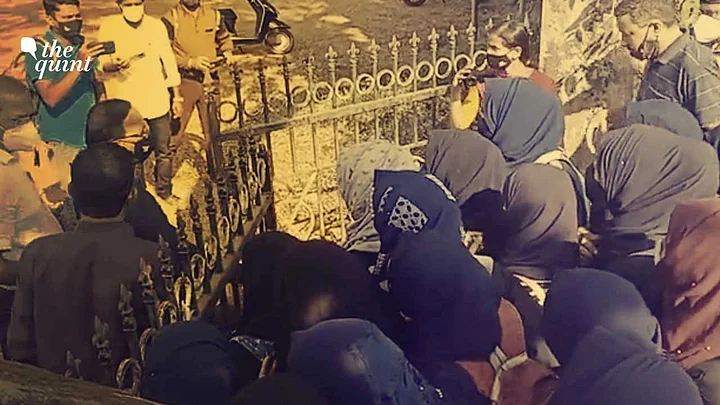"Karnataka High Court's verdict on Hijab is a bad judgment," said Senior Advocate AM Dar, counsel for one of the petitioners who had challenged the Karnataka Government Order banning hijab in schools and colleges.
Dar's comments came in the aftermath of a Karnataka High Court order dismissing the petitions filed by Muslim girl students seeking protection of their right to wear hijab in educational institutions in Karnataka. Pronouncing its order, the court, on Tuesday, 15 March, said:
"We are of the considered opinion that wearing of hijab by Muslim women does not form a part of essential religious practice in Islamic faith... The prescription of school uniform is only a reasonable restriction that is constitutionally permissible which the students cannot object to."
The court, in its verdict, broadly held:
Hijab is not part of essential religious practice in Islam
Prescription of uniform is a reasonable restriction on fundamental rights
No case is made out for invalidating the government order banning hijab
"The school regulations prescribing dress code for all the students as one homogenous class, serve constitutional secularism," the Karnataka High Court further observed in its judgment.
Dar, thereafter, told ANI that they will challenge the high court order in the Supreme Court.
Meanwhile, Supreme Court advocate Anas Tanwir too dubbed the verdict "disappointing" and said in his conversation with The Quint:
"The court has gone into Essential Religious Practice when it should not have. The question, essentially, is whether the state has power to issue such notifications which are against the law, the statute or the rules."
'HC Attempts a Clear-Cut Separation Between Freedom of Religion & Conscience'
Senior Advocate Sanjay Hegde, on his part, pointed out that the court, in its verdict, has also made a dichotomy between freedom of religion and freedom of conscience.
"I think there would be much for the Supreme Court to examine on whether that dichotomy and the implication that freedom of conscience belongs only to those who do not profess any religion is correct."Sanjay Hegde
Meanwhile, pointing out that the court attempts a “clean-cut separation” between conscience and religious freedom, Supreme Court Advocate Gautam Bhatia too wrote in his blog:
“It is important to note that conscience might flow from religious convictions (for example, I may be a pacifist because I am religious), but it need not do so.”
According to Bhatia, the court wrongly elides freedom of conscience and religious freedom, and that for him is one of the reasons why he believes the judgment is incorrect, and should be overturned on appeal. The other reasons for Bhatia are:
The court mistakenly holds that the rights to freedom of expression and to privacy are diminished, or derivative, in this case
The court misapplies the reasonable accommodation test, and does not show how allowing the hijab for those who choose to wear it, as a uniform accessory, is incompatible with the goal of education
The court fails to consider that the ban amounts to indirect discrimination against Muslim women
'Absolutely Shocking': Experts Analyse HC's Take on Substantive Rights
"The High Court has also upheld the power of prescribing the uniform, even though there is no specific provision in the Act," Hegde further said.
"It is not only a question of reasonable restriction of fundamental rights, but it now almost ensures that every administration will end up prescribing uniforms for all students. That is an unfortunate consequence of this order."Sanjay Hegde
The court had also claimed that even the substantive rights themselves metamorphose into a kind of derivative rights. To further back the point, the court gave the example of the rights of a serving convict are inferior to those of an under-trial detainee.
In reference to that Dr Anup Surendranath, who teaches constitutional law at the National Law University (NLU) Delhi took to Twitter to express absolute shock and say:
"For the court to say that in schools, LIKE IN PRISONS, fundamental rights transform from substantive rights to merely derivative ones is just abysmal constitutional reasoning!! (sic)"Dr Anup Surendranath
On being asked if he thought the Karnataka High Court order would have implications on other states as well, Hegde said:
"It is reasonable to assume that other states might get influenced by this order, but I hope this does not become a green signal to other states to do likewise or worse."
